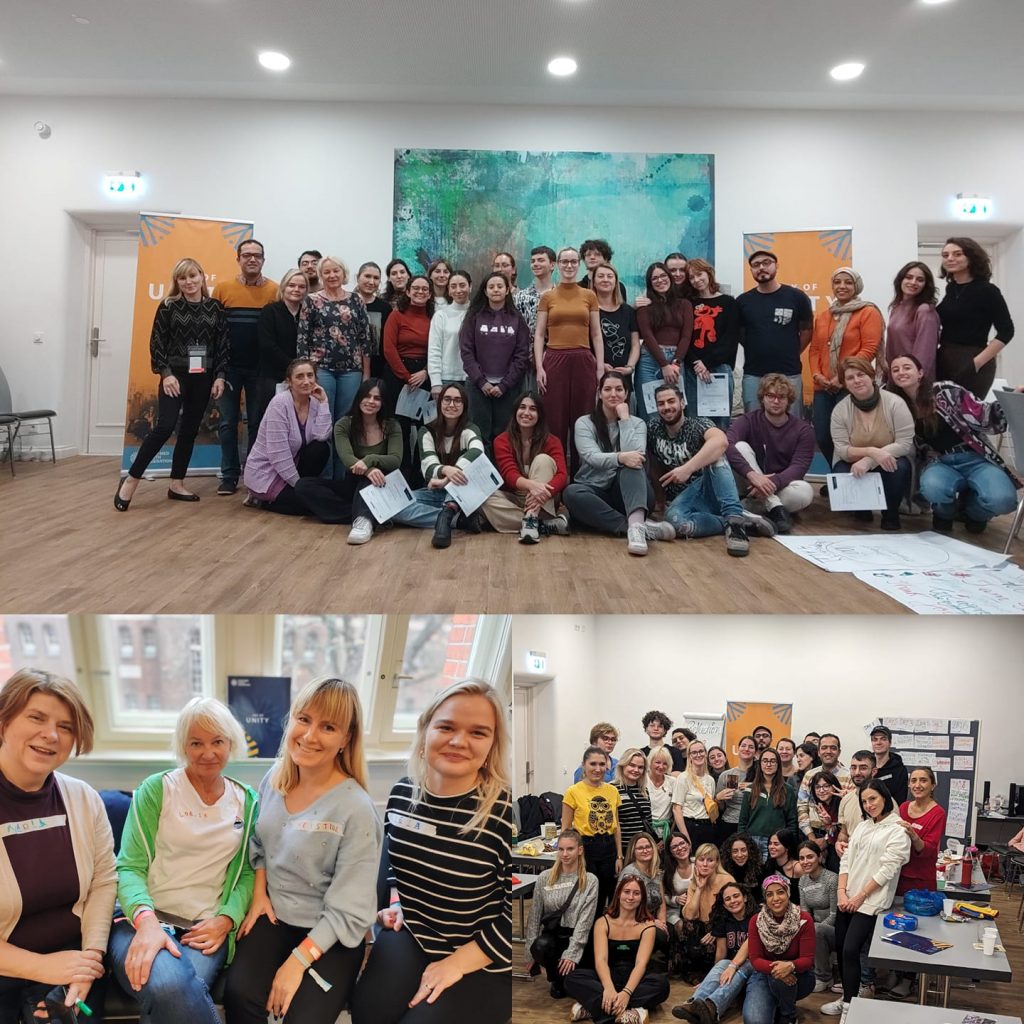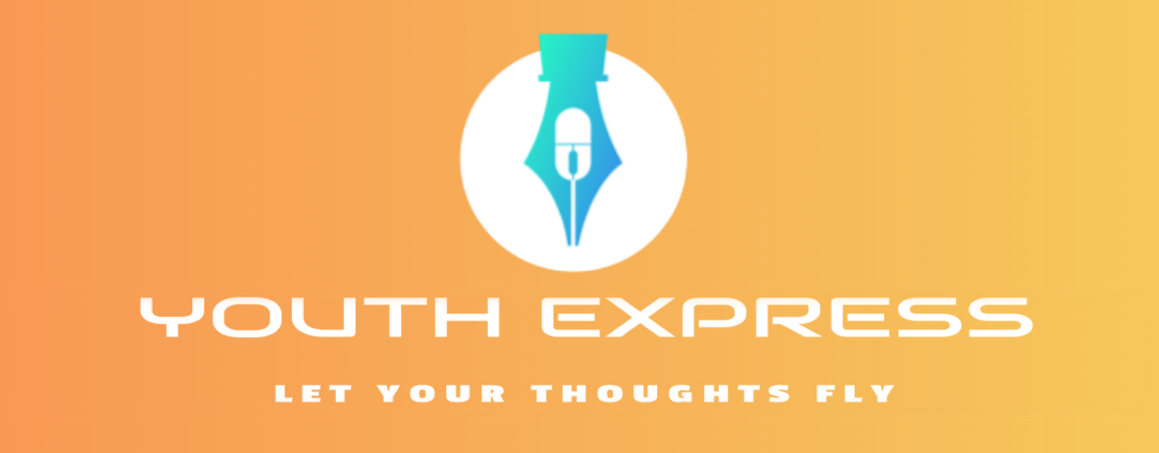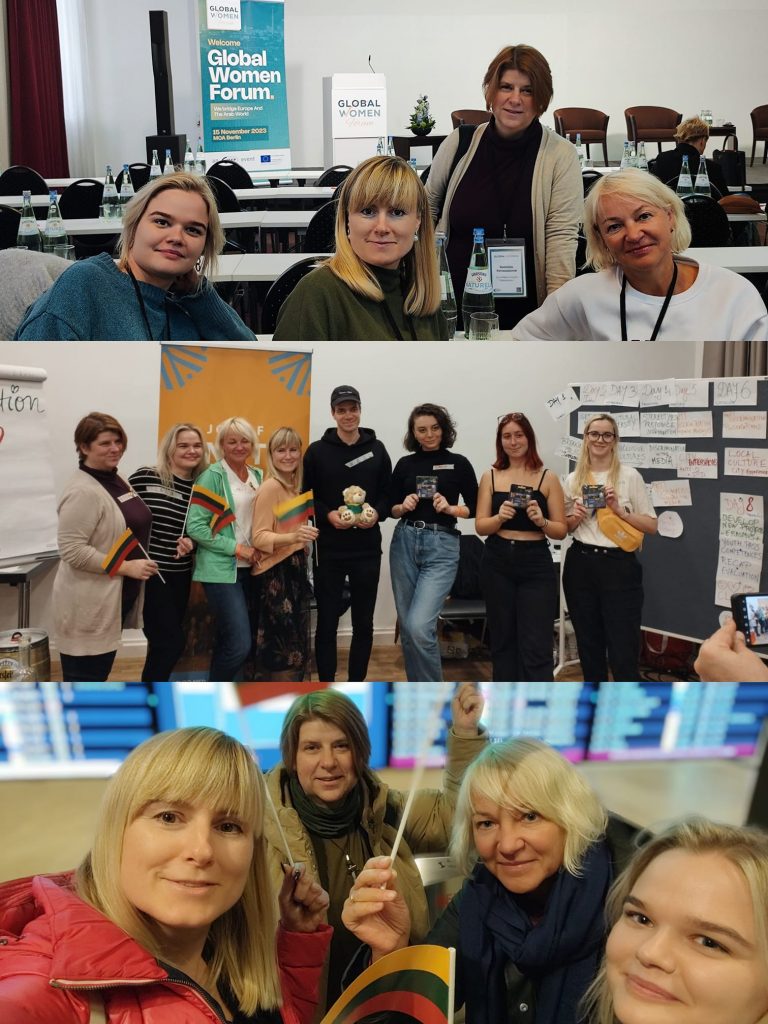On 13-21 November 2023, Kristina Greičienė (English language teacher at Vilnius Taikos pro-gymnasium), Loreta Jusienė (methodologist-teacher at Panevėžys J. Balčikonis Gymnasium), Greta Vykertaitė (recruitment specialist at Employment Service), and Nadežda Petrauskienė (head of the Markučiai Manor Museum) participated in the Erasmus+ project “Include Me!”, which took place in Berlin, the capital of Germany.
In the training for people working with youth, we discussed the benefits and opportunities provided by the Erasmus+ programs, made plans for future projects, participated in various group activities, discussed stereotypes, prejudices, cultural differences and commonalities of different nations, discrimination based on gender, age, appearance, disability, ethnicity and other reasons. All these topics were analyzed through the prism of social media. During the project, together with 43 other participants from Bulgaria, Germany, Netherlands, Greece, Hungary, Italy, Poland, Portugal and Romania, we also participated in the international conference “Global Women Forum – Bridging Europe and the Arab World”: not only we listened to inspiring women’s career and business success stories and debates on the still-existing inequality between men and women, but we also got the chance to ask our questions.

The main goals of the “Include Me!” project are to introduce and encourage people working with youth to use social media in the fight against discrimination, to enable them to understand the influence of stereotypes and prejudices on their own reactions to social problems or cultural differences, and to recognize the manifestations of discrimination around them and towards themselves. All project participants received a “Youthpass” – a certificate proving experience in the youth field of the Erasmus+ programme.
The project promoted intercultural dialogue, social inclusion and solidarity, and the participation of young people in the democratic life of Europe. The course was based on experiential learning (learning by doing) with time for reflection. Methods used: individual work, work in pairs, work in mixed groups, outdoor activities, interviews, debates, non-formal education method – “discussion in the aquarium”, making films/posters. By participating in the project, youth workers improved their work with youth and IT competencies. By fighting discrimination, they will continue to contribute to the creation of socially inclusive communities in their countries, institutions, and virtually.

